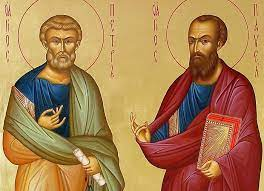OFFICE FOR THE LITURGICAL CELEBRATIONS
OF THE SUPREME PONTIFF
Periods of Silence within the Eucharistic Celebration

Number 45 of the General Instruction of the Roman Missal (Third and Emended Typical Edition, 2008) prescribes:
Sacred silence also, as part of the celebration, is to be observed at the designated times. Its purpose, however, depends on the time it occurs in each part of the celebration. Thus within the Act of Penitence and again after the invitation to pray, all recollect themselves; but at the conclusion of a reading or the homily, all meditate briefly on what they have heard; then after Communion, they praise and pray to God in their hearts. Even before the celebration itself, it is commendable that silence be observed in the church, in the sacristy, in the vesting room, and in adjacent areas, so that all may dispose themselves to carry out the sacred action in a devout and fitting manner.
Paragraph 30 of the Liturgy Constitution, Sacrosanctum Concilium, likewise prescribes: “And at the proper times all should observe a reverent silence.”
Number 56 of the General Instruction specifies better the importance of silence within the Liturgy of the Word, while number 78 makes the same clear for the Liturgy of the Eucharist: “The Eucharistic Prayer demands that all listen to it with reverence and in silence.” Number 84 then underscores the importance of the observance of silence as a means of good preparation for the reception of Holy Communion: “The priest prepares himself by a prayer, said quietly, that he may fruitfully receive Christ’s Body and Blood. The faithful do the same, praying silently.” Finally, the same attitude is proposed for the period of thanksgiving after Communion:
When the distribution of Communion is finished, as circumstances suggest, the priest and faithful spend some time praying privately.1 If desired, a psalm or other canticle of praise or a hymn may also be sung by the entire congregation. (n. 88)
In several other paragraphs of the General Instruction similar directives concerning silence are repeated, such that silence is an integral part of the liturgical celebration.
The Servant of God John Paul II had recognized that, in actual practice, the directive of the Second Vatican Council concerning sacred silence, a directive later included in the General Instruction, was not always faithfully observed. He writes: “One aspect that we must foster in our communities with greater commitment is the experience of silence. . . . The Liturgy, with its different moments and symbols, cannot ignore silence.” (Spiritus et Sponsa, n. 13, emphasis in original)

Here we can recall a text of the then-theologian and Cardinal Joseph Ratzinger:
We are realizing more and more clearly that silence is part of the liturgy. We respond, by singing and praying, to the God who addresses us, but the greater mystery, surpassing all words, summons us to silence. It must, of course, be a silence with content, not just the absence of speech and action. We should expect the liturgy to give us a positive stillness that will restore us.2

Consequently, the observance of the moments of silence envisioned by the liturgy is of great importance. These moments of silence are as much an integral part of the ars celebrandi (art of celebrating) of the ministers as is participatio actuosa (active participation) on the part of the faithful. Silence in the liturgy is the moment in which one listens with greater attention to the voice of God and internalizes His word, so that it bears the fruit of sanctity in daily life.










